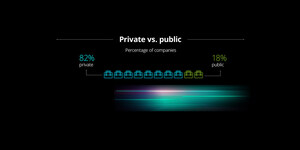NEW YORK, Oct. 24, 2019 /PRNewswire/ --
Key takeaways
- Despite a long journey ahead, radical interoperability is picking up speed and moving from aspiration to reality in the life sciences and health care industries.
- Cost of care, consumer experience, care coordination and patient outcomes can benefit the most from broader industry operability in the next three years.
- Radical interoperability is being driven not only by regulations, but also by value-based care and consumer demand.
- The technology capabilities required for interoperability are finally reaching the life sciences and health care industries.
Why does it matter to health care stakeholders?
In the spring of 2019, the Deloitte Center for Health Solutions surveyed 100 technology executives at health systems, health plans, biopharma companies and medtech companies and interviewed another 21 experts to understand the state of interoperability today. The report provides insights for health care stakeholders that want to emerge as a leader in their use of data and analytics in the future of health. This includes the need to prioritize interoperability at the leadership level; developing a bold investment strategy that focuses on strategic, future-looking opportunities; and leveraging the coming compliance, privacy and security regulations as a key catalyst to drive enterprise momentum.
Not just regulations: what's driving broader interoperability?
As highlighted in the Center's report on interoperability in August 2019, upcoming interoperability standards are seen as a baseline for health care executives to set their own strategies for the future of health. Today's report identifies that while regulations are one of the biggest drivers (47%) for broader interoperability, value-based care is the greatest driver (51%) in this pursuit. Furthermore, a recognition of consumer demand for transparency and access — particularly among younger generations —– is one of the top drivers (41%).
Survey respondents said cost of care (44%), consumer experience (38%) and care coordination and patient outcomes (36%) will benefit the most from broader industry interoperability over the next three years. Respondents also said they are optimistic that interoperable platforms and data will transform nearly all aspects of the health care system.
Technology building blocks
The survey found the technology capabilities required for interoperability and those that exist in other industries are finally reaching the health care industry:
- Fifty-three percent of executives surveyed are building their own application programming interfaces (APIs).
- Seventy-three percent have a dedicated and centralized team overseeing interoperability.
- Nearly 80% have hired data architects to define their strategies.
- Sixty percent are hosting more than half of their applications in the cloud.
Key quote
"Radically interoperable data is a fundamental enabler of the future of health, which will see timely and relevant health data flowing between all participants in the health care ecosystem. It's clear the industry recognizes the value of interoperability. More importantly, many health care executives are actively engaged in building strategies to deliver on the consumer and business benefits of radical interoperability within the next three to five years."
Mike DeLone, principal, Deloitte Consulting LLP,
national sector leader, Deloitte's life sciences practice
To review "Radical interoperability: Picking up speed to become a reality for the future of health" research paper, please visit Deloitte Insights.
About Deloitte
Deloitte provides industry-leading audit, consulting, tax and advisory services to many of the world's most admired brands, including nearly 90% of the Fortune 500® and more than 5,000 private and middle market companies. Our people work across the industry sectors that drive and shape today's marketplace — delivering measurable and lasting results that help reinforce public trust in our capital markets, inspire clients to see challenges as opportunities to transform and thrive, and help lead the way toward a stronger economy and a healthy society. Deloitte is proud to be part of the largest global professional services network serving our clients in the markets that are most important to them. Our network of member firms spans more than 150 countries and territories. Learn how Deloitte's more than 312,000 people worldwide make an impact that matters at www.deloitte.com.
About the Deloitte Center for Health Solutions
The source for fresh perspectives in health care: The Deloitte Center for Health Solutions (DCHS), part of Deloitte LLP's Life Sciences and Health Care practice, looks deeper at the biggest industry issues and pro-vides new thinking around complex challenges. Cutting-edge research and thought-provoking analysis give our clients the insights they need to see things differently and address the changing landscape. To learn more about the DCHS and our research, please visit www.deloitte.com/centerforhealthsolutions.
Deloitte refers to one or more of Deloitte Touche Tohmatsu Limited, a UK private company limited by guarantee ("DTTL"), its network of member firms, and their related entities. DTTL and each of its member firms are legally separate and independent entities. DTTL (also referred to as "Deloitte Global") does not provide services to clients. In the United States, Deloitte refers to one or more of the US member firms of DTTL, their related entities that operate using the "Deloitte" name in the United States and their respective affiliates. Certain services may not be available to attest clients under the rules and regulations of public accounting. Please see www.deloitte.com/about to learn more about our global network of member firms.
SOURCE Deloitte

Related Links
WANT YOUR COMPANY'S NEWS FEATURED ON PRNEWSWIRE.COM?
Newsrooms &
Influencers
Digital Media
Outlets
Journalists
Opted In





Share this article